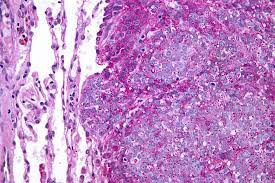
Mumbai docs successfully treat woman with rare Ewing’s sarcoma of breast
Mumbai, Feb 6 (IANS) A 48-year-old woman with rare Ewing’s sarcoma of the right breast has been given a new lease of life after doctors here successfully treated her.
Ewing’s sarcoma or PNET (primitive neuroectoderm tumor) are rare, cancerous round cell tumor of the bone and soft tissue usually occurring in children and young adolescents.
So far only 15 cases of Ewing’s sarcoma of the breast have been reported worldwide, according to a study published in Annals of Clinical Case Reports in July 2022.
The prognosis of the Ewing’s sarcoma of the breast in very large tumour or metastatic tumours (spread beyond breast) is fatal.
The patient Pratiksha Mane, first presented at OPD of Jaslok Hospital & Research Centre, Mumbai, in October 2023 with a mobile painless lump in the right upper quadrant of her breast.
It was a large tumour but resectable and non-metastatic. A PET CT confirmed the disease to be localised to the right breast with no spread elsewhere in the body.
Following a comprehensive evaluation the doctors decided to proceed with breast conservation surgery.
The surgery involves the removal of the tumour with wide margins and reconstruction using the patient’s own muscle and skin from the back, was performed in a single sitting.
The procedure was a resounding success, with Mane experiencing an uncomplicated recovery and being discharged within a week, said the multidisciplinary team of doctors led by Satish Rao, Consultant Surgical Oncology at the hospital.
“We are delighted with the successful surgery and the positive cosmetic results achieved for Mane. Our team’s collaborative approach and the patient’s desire for breast conservation played a crucial role in determining the treatment plan,” Mane said in a statement.
The final histopathology report confirmed that the eliminated lesion was indeed Ewing’s sarcoma of the right breast, with all margins and the base of the lesion found to be free from tumour cells.
Mane is currently undergoing radiation therapy and may require chemotherapy in future.
